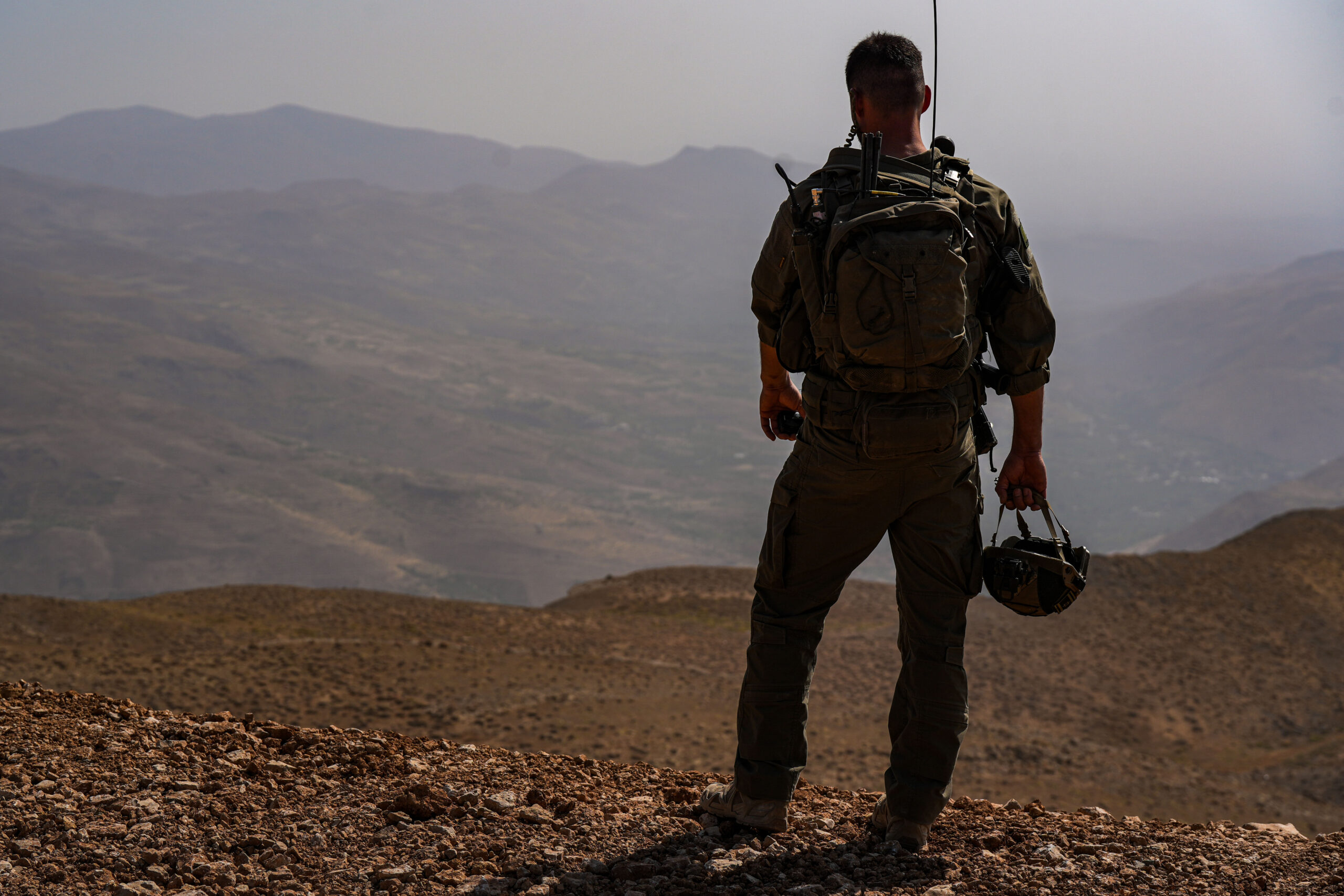Al-Sharaa Demands Israeli Withdrawal Before Security Deal
Syrian President Ahmed al-Sharaa said a full Israeli pullback to positions held before December 8, 2024, is required before Damascus will finalize a security agreement with Jerusalem.
Speaking with The Washington Post during his landmark visit to Washington this week, al-Sharaa said direct talks with Israel have made progress but remain incomplete. “For a final agreement, Israel must return to the borders that existed before December 8,” he said.
U.S. President Donald Trump hosted the Syrian leader Monday at the White House, marking the first visit by a Syrian president. Al-Sharaa claimed that Trump backs his stance, adding that “many international parties” share Syria’s view.
After the Assad regime’s collapse last December, Israel took control of parts of southern Syria, citing the need to secure its northern frontier. Prime Minister Benjamin Netanyahu has rejected reports suggesting Israel might surrender its buffer zone as part of a future accord, saying any deal would center on a demilitarized southwest and security for Druze communities in Jabal al-Druze.

Al-Sharaa dismissed the idea of a broad demilitarized zone south of Damascus. “If there is chaos, who will protect it? This is Syrian land, and Syria must be free to manage its territory,” he said. He accused Israel of seeking expansion rather than security, claiming, “They occupied the Golan Heights to defend Israel, and now they impose conditions in the south to defend the Golan. If that logic continues, where will it end?”
Israel maintains that its military presence in southern Syria is purely defensive, aimed at countering threats from Hezbollah and Iranian forces. Al-Sharaa argued those groups were already expelled, insisting Israel’s motives are “not about security, but about ambition.”
Sa’ar: Iran Targeted Israeli Diplomats Worldwide
Israeli Foreign Minister Gideon Sa’ar revealed Tuesday that Iranian operatives have repeatedly plotted to assassinate Israeli diplomats across multiple countries.
Speaking at the inauguration of Israel’s new embassy in Tallinn, Estonia, Sa’ar referenced a recent foiled attempt against Israel’s ambassador to Mexico. “It’s not the only place they’ve tried,” he said. “Iran consistently targets our embassies, our ambassadors, and our diplomats. We will not be deterred.”
Sa’ar emphasized that Israel would continue strengthening diplomatic ties despite Tehran’s aggression, noting that the Estonia embassy is the third new mission opened this year.
🚨Israel Foreign Minister Gideon Sa'ar, before the opening of the Israeli embassy in Estonia: "It was recently reported that Iran tried to assassinate the Israeli ambassador in Mexico. This is not the only place they tried to do so. From here, I want to send a message to be heard… pic.twitter.com/XkHPvanBXp
— Raylan Givens (@JewishWarrior13) November 11, 2025
Last week, U.S. and Israeli officials confirmed that an operative from Iran’s Islamic Revolutionary Guard Corps, Hasan Izadi, planned to assassinate Ambassador Einat Kranz Neiger in Mexico. The U.S. official, speaking anonymously, said the plot “was contained and poses no current threat.”
“This is just the latest in Iran’s long pattern of targeting diplomats, journalists, dissidents, and anyone who challenges their regime,” the official added. Israel’s Foreign Ministry thanked Mexican authorities for thwarting the attempted attack.
Hezbollah Warns Israel Against Continuing Strikes in Lebanon
Hezbollah’s deputy leader Naim Qassem warned that Israeli airstrikes in southern Lebanon “cannot continue,” saying during a televised address on Tuesday that “everything has a limit.”
Qassem argued that the current ceasefire applies only to southern Lebanon and rejected calls for Hezbollah to disarm. “We will not give up our weapons,” he said, claiming they are essential for defense. He also opposed Lebanese government efforts to seize the group’s arsenal.
Hezbollah chief Naim Qassem denounces in a televised address pressure exerted by the United States on Lebanon to make “concessions” without “guarantees,” reiterating his group’s refusal to give up its weapons.#Lebanon pic.twitter.com/W3wcoON1MP
— Al Arabiya English (@AlArabiya_Eng) November 11, 2025
Meanwhile, the Israel Defense Forces have continued operations targeting Hezbollah infrastructure in the south, saying the missions aim to prevent the group from rebuilding after suffering heavy losses in the recent war. The IDF reported dismantling several terror-linked structures in the Houla area and neutralizing old weapons and explosives.
The army said such activity violates the existing security understandings between Israel and Lebanon. “We will continue removing any threat to the State of Israel,” the IDF stated, releasing video of the operation.
According to Israeli media, defense officials have presented plans for intensified military action, citing the Lebanese government’s failure to curb Hezbollah’s resurgence. Israel has warned that if cross-border attacks persist, it will strike harder—even if that leads to further escalation.





